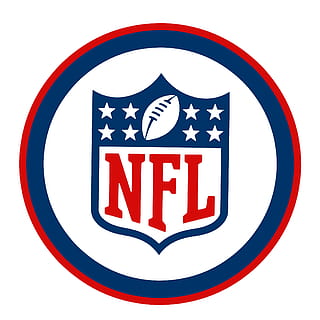In years past, many who indulge in fantasy football each NFL season have probably built their teams with a particular focus on the running back position. Every year, for decades, it seems like running backs are the primary position that fantasy team owners would utilize in order to get the maximum number of total points. This seems to be the case, especially in leagues with two running back slots and one or more flex slots.
However, due to recent trends in the NFL in regards to the running back position, the future of fantasy football may lie in the hands of the wide receivers.
The value of the running back to an NFL roster has been debated for the past few seasons. This argument has been brought to the forefront again recently with the news about Johnathan Taylor and his contract disputes with the Indianapolis Colts which led to his subsequent trade request from the team.
This debate can be traced back to 2018 when Le’Veon Bell sat out the entire 2018 season in the midst of a contract battle with the Pittsburgh Steelers.
He did this in the hope that his refusal to play would pressure the Steelers to realize his value and sign him to the contract he felt he deserved.
However, this is far from what happened as backup RB James Conner had a breakout season with the Steelers in which he had over 1,400 yards from scrimmage and a Pro Bowl nod. This all led to the Steelers allowing Le’Veon Bell to walk in free agency to the Jets in favor of Conner.
A similar situation occurred in 2019 with Los Angeles Chargers star running back Melvin Gordon as he also sat out games in hopes of pressuring the Chargers organization into giving him the money he wanted. Again, the opposite occurred, as a backup running back Austin Ekeler had a breakout season similar to James Conner, with Ekeler totaling over 1,500 yards from scrimmage that year.
This, similar to Bell, led the Chargers to allow Gordon to walk in free agency to Denver in favor of Ekeler.
During the same period of time, star running backs who had already gotten their large extensions, namely Todd Gurley, Ezekiel Elliot, and Christian McCaffery, all suffered one or multiple career-altering or ending injuries or had a serious dip in overall production, making their large contracts more of a burden on their team than anything else. This led to the Rams releasing Gurley, the Cowboys releasing Elliot, and the Panthers trading McCaffery to the 49ers.
These conditions from 2018 to today have resulted in a new attitude around the league in regard to the running back position. Instead of spending a high draft pick and investing heavily in a single running back for years and years, teams are opting to draft running backs, get as much out of them during their rookie contracts as possible, and then let them walk after four or five years in favor of new rookie RBs.
The debate over the value of the running back to NFL rosters is now starting to extend into the world of fantasy football as well. With the frequent turnover of starting running backs across the league, combined with a lack of durability at the position, very few names are a sure pick at the position heading into the 2023-24 season.
Names like Ekeler and McCaffery should still be headliners in the top ten, along with newcomer Bijan Robinson who is expected to have a big rookie season in the Falcons run-heavy offense.
However, for those looking for an overall draft strategy, it may be more wise to target wide receivers over running backs this year and moving forward. Some of the most notable top finishers last year in fantasy football among skill positions were Tyreek Hill, Justin Jefferson, Jaylen Waddle, Travis Kelce and Ja’Marr Chase, all of whom are wide receivers or tight ends.
Now, there were plenty of running backs that were in that mix as well, with Christian McCaffery, Johnathan Taylor, Austin Ekeler, and Saquon Barkley all having notable fantasy performances.
However, picking the aforementioned running backs over the aforementioned receivers is not as much of a wise decision given the current environment surrounding running backs in the NFL.
Coming into this season, McCaffery is coming off of another year plagued by injury, and Ekeler, Taylor, and Barkley were all involved in offseason drama due to contract disputes, leading Taylor to be unavailable for the first few weeks of the season, and Ekeler and Barkleys time on their respective teams uncertain.
Meanwhile, Hill and Waddle are primed to have another year of top fantasy finishes on a competitive Miami Dolphins roster.
Jefferson, Kelce, and Chase also show no signs of slowing down their production either, along with no concerns in terms of drama surrounding contract disputes or serious injury concerns.
In short, it is much smarter to draft your fantasy teams with a focus on wide receivers over running backs moving forward, as wide receivers have a more assured spot on their roster which should result in no holdouts over contract issues, along with the fact that they tend to have less overall injury concerns, and have equal or better fantasy output to running backs due to most NFL offenses switching to be more pass-centric in recent years.
Also, plenty of good running backs will be available to draft in later rounds of your fantasy draft, with James Conner, Lions rookie Jahmyr Gibbs, and Travis Etienne all being solid fantasy options that are usually still on the board later in the draft.
So this fantasy football season, consider shifting your focus from running backs first to wide receivers first, as the conditions in the NFL currently and moving forward will
seriously affects the future of running backs fantasy value.


